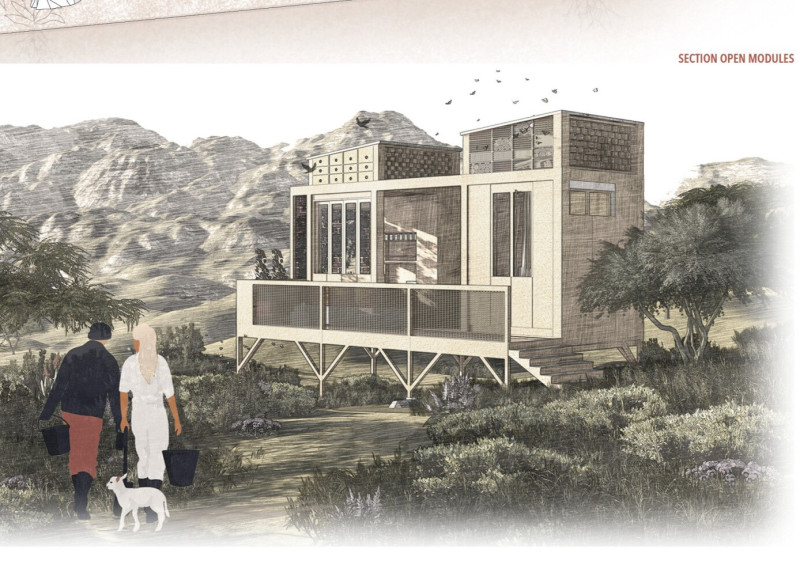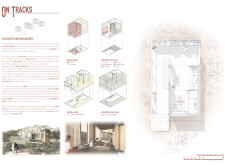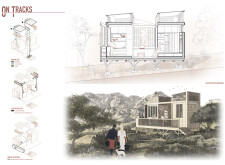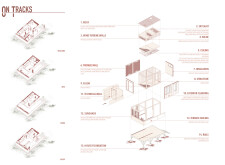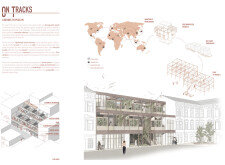5 key facts about this project
## Overview
"On Tracks" is a micro-living project aimed at addressing contemporary housing challenges in densely populated urban environments. The design focuses on flexibility, modularity, and sustainability to accommodate the diverse needs of its inhabitants. Located within a context that demands efficient use of space, this project proposes living solutions that integrate seamlessly within the urban fabric while promoting a connection to nature.
## Modular Living Strategy
Central to the project is the concept of modular living spaces that adapt according to the needs of residents. The design features two primary modules: a daytime area and a nighttime area. This separation allows for effective functional zoning, catering to various activities such as work, leisure, and social interactions. The incorporation of sliding partitions and movable elements provides occupants with the ability to customize the space, reflecting personal preferences and requirements.
## Material and Environmental Integration
The selection of materials emphasizes sustainability while enhancing aesthetic and functional qualities. Key materials include wood for structural support, recycled fiber insulation for energy efficiency, and earth bricks for thermal management. The architectural design prioritizes environmental responsiveness through features such as cross-ventilation and solar panel integration, optimizing energy use while minimizing reliance on mechanical systems. Water management systems, including rainwater collection and greywater reuse, further reinforce the project's commitment to sustainability.
## Dynamic Spatial Configuration
The compact floor plan, totaling 24.8 m², strategically organizes space to maximize functionality. The daytime module is designed to capture natural light and promote ventilation, while the nighttime module provides privacy with essential amenities. Outdoor spaces are incorporated to enhance social interaction during warmer months, and internal areas are designed for versatility regardless of seasonal changes. This strategic zoning not only enhances the living experience but also supports community engagement and interaction.


